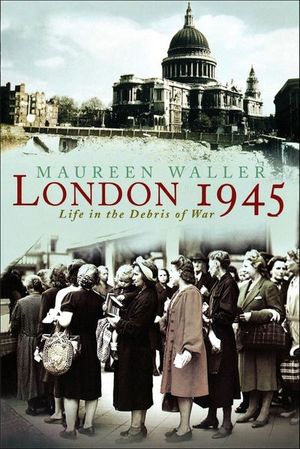London 1945
Published by St. Martin's Publishing Group
“A compelling account of the final year of a valiant city’s stand against the Fuhrer. . . . History alive with real human faces” (Booklist).
“Joins the ranks of each works as Philip Ziegler’s London at War and Robert Hewison’s Under Siege: Literary Life in London, 1939-1945. . . . [Waller’s] depiction of the daily fabric of wartime life in the capital is unrivaled. . . . An illuminating approach.” —The Atlantic Monthly
London at the outset of World War II in 1939 was the greatest city in the world, the heart of the British Empire. By 1945, it was a drab and exhausted city, beginning the long haul back to recovery.
When Hitler unleashed a fierce barrage of weapons on the defiant capital of England, London’s resilient citizens were undaunted. With colorful detail and rich insight, historian Maureen Waller takes readers through London in the last year of war. She reveals the magnificence of human spirit that carried a besieged people through agonizing travails and the long, giddy transformation the metropolis made as it passed through battle, to celebration, and back to life as usual.
“Thoroughly engrossing…builds up a detailed picture of daily life in London.” —The New York Times
“A gracefully rendered portrait of a great city at war. . . . Vivid and highly readable.” —Kirkus Reviews
“Balances an enormous amount of data with a journalistic attention to anecdote and oral history in this stunning book.” —Publishers Weekly (starred review)
“Waller’s book masterfully . . . provides the reader with a well-crafted story of war and its cruel impact on a large European city.” —Library Journal
BUY NOW FROM
COMMUNITY REVIEWS

